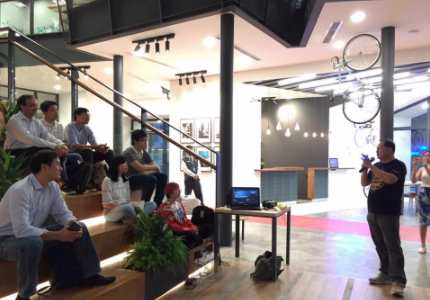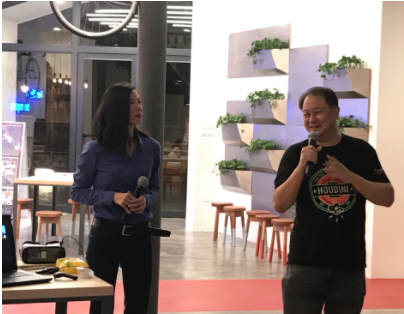By Vanessa Radd, Singapore Chapter President
Virtual reality has most often been associated with gaming while other sectors such as healthcare and education where VR can play a major role, has been overlooked.
In our recent VR in Healthcare session with Samsung, the XR Alliance and VR AR Association shared VRARA's findings from the latter's Digital Healthcare Committee in the U.S.A.
Understandably, funding is ranked as the top challenge.
In the next group of challenges, workflows of clinical organizations are cited - they need to change and adapt. Circumventing through organizational challenges to implement a new workflow for VR is a major barrier. Of course, the lack of VR/AR knowledge and VR/AR research is where we are at now. And the lack of data and research for VR in the APAC markets is even more so stark.
Each region would have different cultural barriers in terms of acceptance of new technology. Something to bear in mind when implementing new tech in new markets.
Use cases
MindMaze uses VR and AR to treat Parkinsons patients, amputees and stroke victims. Their VR solutions seek to help these patients to train their brain to stimulate limb movements.
Applied VR embarked on a VR trial that looks into alleviating pain management via interactive games and relaxing landscapes in 150 clinical organizations.
Cambridge University's research lab is working on rendering 3D VR treatment for cancer. With VR, they are able to study cancer tumors in 3D to come up with better treatments.
Birmingham University's VR research team, led by Bob Stone (a founding member of the XR Alliance), is looking into the use of VR for restorative therapy and, more recently, for lower limb rehabilitation and lung/diaphragm recovery support for patients in intensive care.
In Singapore, Side Effects Asia Pacific Pte Ltd is working on VR technology systems for advanced clinical training. It simulates medical emergency scenarios in 3D to train medical students in highly stressful, decision-making scenarios.
Other examples of VR for healthcare are treating PTSD patients, ticking off bucket lists(!), pain alleviation while in the dentist chair...we are in an experimental age indeed.
We continue the discussion and maintain these questions as we work with industry players and partners.
- How can healthcare leap into VR?
- How can the company's technology be integrated into and optimized for clinical workflows?
Special thanks to Funan our event partner. Follow FunanSG on Facebook and Instagram.







